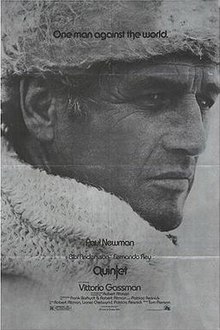
Robert Bernard Altman was an American film director, screenwriter, and producer. He was a five-time nominee of the Academy Award for Best Director and is considered an enduring figure from the New Hollywood era. His most famous directorial achievements include M*A*S*H (1970), McCabe & Mrs. Miller (1971), The Long Goodbye (1973), Nashville (1975), 3 Women (1977), The Player (1992), Short Cuts (1993), and Gosford Park (2001).

McCabe & Mrs. Miller is a 1971 American revisionist Western film directed by Robert Altman and starring Warren Beatty and Julie Christie. The screenplay by Altman and Brian McKay is based on the 1959 novel McCabe by Edmund Naughton. Altman referred to it as an "anti-Western" film because it ignores or subverts a number of Western conventions. It was filmed in British Columbia, Canada in the fall and winter of 1970, and premiered on June 24, 1971.

Carnal Knowledge is a 1971 American drama film directed by Mike Nichols and written by Jules Feiffer. It stars Jack Nicholson, Art Garfunkel, Ann-Margret, Candice Bergen, and Rita Moreno.

Come Back to the 5 & Dime, Jimmy Dean, Jimmy Dean is a 1982 comedy-drama film and an adaptation of Ed Graczyk's 1976 play. The Broadway and screen versions were directed by Robert Altman, and stars Sandy Dennis, Cher, Mark Patton, Karen Black, Sudie Bond, and Kathy Bates.

The Gambler is a 1974 American crime drama film written by James Toback and directed by Karel Reisz. It stars James Caan, Paul Sorvino and Lauren Hutton. Caan's performance was widely lauded and was nominated for a Golden Globe.

A Wedding is a 1978 American satirical comedy-drama film directed by Robert Altman, with an ensemble cast that includes Desi Arnaz, Jr., Carol Burnett, Paul Dooley, Vittorio Gassman, Mia Farrow, Lillian Gish, Geraldine Chaplin, Howard Duff, Nina Van Pallandt, Amy Stryker, and Pat McCormick. The story is told in typical Altman style, with multiple plots and overlapping humorous dialogue.

Brewster McCloud is a 1970 American black comedy film directed by Robert Altman. The film follows a young recluse who lives in a fallout shelter of the Houston Astrodome, where he is building a pair of wings in order to fly. He is helped by his comely and enigmatic "fairy godmother," played by Sally Kellerman, as he becomes a suspect in a series of murders and a haughty hot-shot detective lieutenant from San Francisco, played by Michael Murphy, is soon hot on his trail.
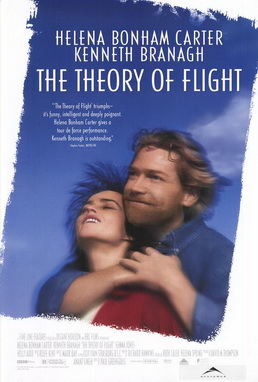
The Theory of Flight is a 1998 British comedy-drama film directed by Paul Greengrass from a screenplay written by Richard Hawkins. It stars Helena Bonham Carter and Kenneth Branagh.

The King of Marvin Gardens is a 1972 American drama film. It stars Jack Nicholson, Bruce Dern, Ellen Burstyn and Scatman Crothers. It is one of several collaborations between Nicholson and director Bob Rafelson. The majority of the film is set in a wintry Atlantic City, New Jersey, with cinematography by László Kovács.
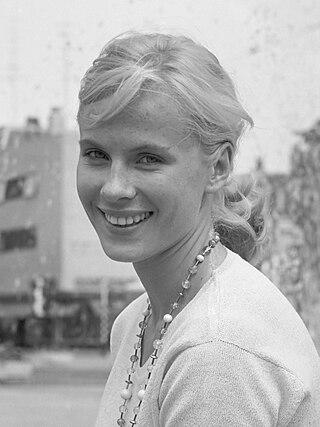
Berit Elisabet Andersson, known professionally as Bibi Andersson, was a Swedish actress who was best known for her frequent collaborations with filmmaker Ingmar Bergman.
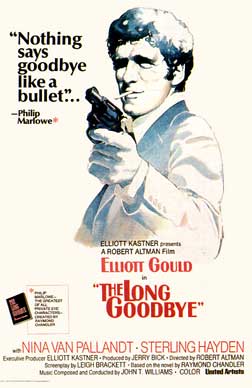
The Long Goodbye is a 1973 American neo-noir satirical mystery crime thriller film directed by Robert Altman and based on Raymond Chandler's 1953 novel. The screenplay is by Leigh Brackett, who co-wrote the screenplay for Chandler's The Big Sleep in 1946. The film stars Elliott Gould as Philip Marlowe and features Sterling Hayden, Nina Van Pallandt, Jim Bouton, Mark Rydell, and an early, uncredited appearance by Arnold Schwarzenegger.

Images is a 1972 psychological horror film written and directed by Robert Altman and starring Susannah York, René Auberjonois and Marcel Bozzuffi. The picture follows an unstable children's author who finds herself engulfed in apparitions and hallucinations while staying at her remote vacation home.

California Split is a 1974 American comedy-drama film directed by Robert Altman and starring Elliott Gould and George Segal as a pair of gamblers and was the first non-Cinerama film to use eight-track stereo sound.
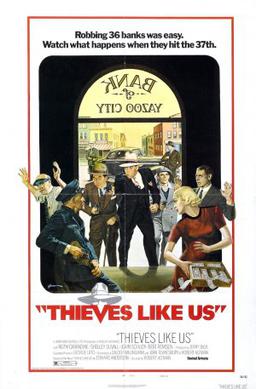
Thieves Like Us is a 1974 American crime film, set in the United States of the 1930s. It was directed by Robert Altman and starred Keith Carradine and Shelley Duvall. The film was based on the novel of the same name by Edward Anderson, which also supplied source material for the 1948 film They Live by Night, directed by Nicholas Ray. The Altman film sticks much closer to the book. The supporting cast includes Louise Fletcher and Tom Skerritt.

HealtH is a 1980 American ensemble comedy film, the fifteenth feature project from director Robert Altman. It stars Carol Burnett, Glenda Jackson, James Garner, Lauren Bacall, and Paul Dooley, and was written by Altman, Dooley and Frank Barhydt. The film's title is an acronym for "Happiness, Energy, and Longevity through Health".

Gorillas in the Mist is a 1988 American biographical drama film directed by Michael Apted from a screenplay by Anna Hamilton Phelan and a story by Phelan and Tab Murphy. The film is based on the work by Dian Fossey and the article by Harold T. P. Hayes. It stars Sigourney Weaver as naturalist Dian Fossey and Bryan Brown as photographer Bob Campbell. It tells the story of Fossey, who came to Africa to study the vanishing mountain gorillas, and later fought to protect them.

Petulia is a 1968 drama film directed by Richard Lester and starring Julie Christie, George C. Scott and Richard Chamberlain. The film has a screenplay by Lawrence B. Marcus from a story by Barbara Turner and is based on the 1966 novel Me and the Arch Kook Petulia by John Haase. It was scored by John Barry.

Nina, Baroness van Pallandt is a Danish retired singer and actress.
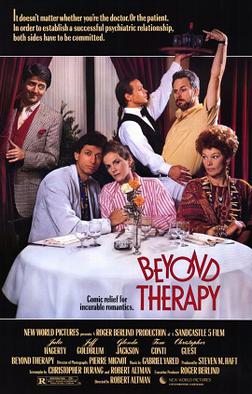
Beyond Therapy is a 1987 American comedy film written and directed by Robert Altman, based on the 1981 play of the same name by Christopher Durang. It stars Julie Hagerty, Jeff Goldblum, Glenda Jackson, Tom Conti, and Christopher Guest.
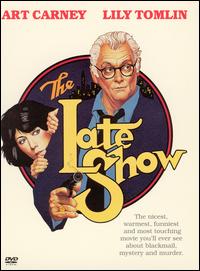
The Late Show is a 1977 American neo-noir mystery film written and directed by Robert Benton and produced by Robert Altman. It stars Art Carney, Lily Tomlin, Bill Macy, Eugene Roche, and Joanna Cassidy.
